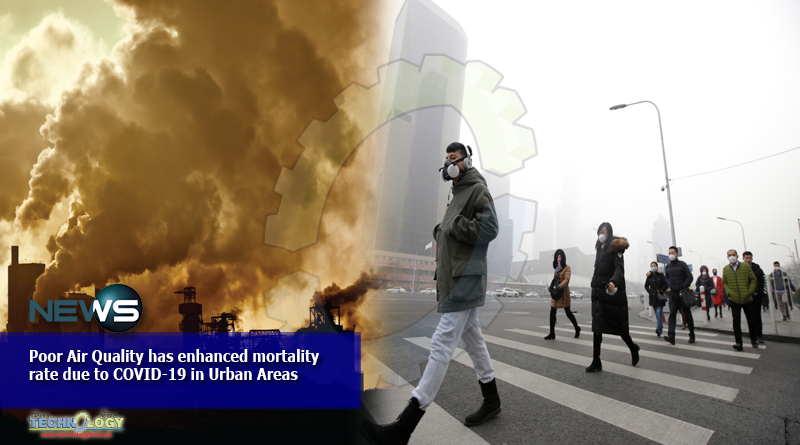Areas that had high levels of air pollution before the pandemic are more vulnerable to the COVID-19 in comparison to people living in cleaner parts of the world

Air pollution has the highest contribution to the environmental burden of disease is not only in Pakistan but also worldwide and is responsible for more deaths in the world as more polluted areas are more vulnerable to COVID-19.
Pakistan is considered the sixth most populous country in the world and has 36.4% of its population living in urban areas. The country also has the highest urbanization rate in all of South Asia.
As a result of this proliferation, population density has increased and this has negatively impacted air quality, particularly in the country’s urban regions.
According to the World Air Quality Report 2019, several cities in Pakistan, including Lahore, Karachi, Peshawar, and Faisalabad rank prominently among the most polluted cities globally.
And in these cities, the pollution coupled with population density and overburdened healthcare structures severely impact public health.
The proven relationship between air pollution and respiratory and cardiovascular diseases can worsen the situation and make it harder to fight the disease caused by the novel Coronavirus.
Since the major culprit, in this case, is transportation, the problem of air pollution is worse in urban centers like Karachi and Lahore; these cities are already hit hard by COVID-19 with over 900 confirmed cases in each and the numbers of those infected and getting sick because of the virus increasing on a daily basis.
The investigations on COVID-19 and air quality also highlight the need to update existing air pollution regulations and enforce new and stricter ones to prepare for the time when the lockdown is over and particle concentrations begin to increase again.
This pandemic has not only shown us the importance of efficient and functioning health systems but also the value of air quality as vital in building resilience for any country.
